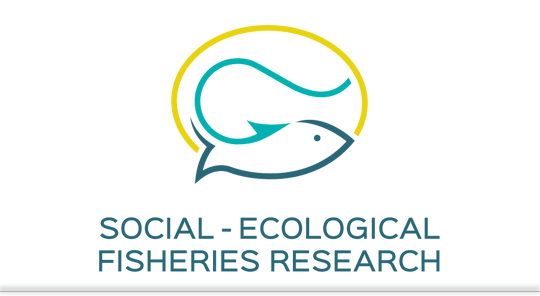There is some concern that the management of German recreational fisheries (GRF) might impair ecosystem services generated by fish and facilitate social conflicts among resource users. Furthermore, it might be characterized by inefficient resource management. This paper aims to develop a framework to analyze these potential problems growing out of multiple interactions within and between anglers and fish resources. Both are placed in a complex social and ecological system (SES). Besides the angler’s activities, the major components of the social system are the institutional environment on one hand and the agents of the governance structure who decide about resource management on the other. The fish stocks as part of the ecological system are embedded in resource systems such as waters and in the broader biophysical world. Their specific characteristics as renewable common pool resources need particular awareness in resource management. All components are connected by multiple relations, which are explained by using insights from Institutional and Ecological Economics Theories. Based on the work of Elinor Ostrom (2005, 2007) we develop a framework which is explained from the perspective of the governance structure. Its agents, in charge for a collective choice of a particular management approach, are the key for solving potential problems in resource use. To balance possible ecological, social, and economic problems which arise from the complexity, uncertainty and changes in all components of the SES, we argue that an adaptation of management instruments is needed to achieve a sustainable resource management over time. A specific feature of GRF is the resource management on different spatial levels in East and West Germany. These two distinct governance structures provide a compelling frame to study different efforts to manage for sustainability.
Collective choice on different spatial levels and over time: a framework to analyze adaptation and sustainability of common pool resource management in German recreational fisheries (GRF)∗
Peer-reviewed

Daedlow, K., Arlinghaus, R., Beckmann, V. (2007). Collective choice on different spatial levels and over time: a framework to analyze adaptation and sustainability of common pool resource management in German recreational fisheries (GRF)∗. In: Ostrom, Elinor; Schlüter, Achim (Ed.): Interdisciplinary PhD Seminar “The Challenge of Self-Governance in Complex, Globalizing Economies” – Collection of revised papers, Institute of Forestry Economics, University of Freiburg, Arbeitsbericht 47-2007
Published
: 2007
Appeared in
: In: Ostrom, Elinor; Schlüter, Achim (Ed.): Interdisciplinary PhD Seminar “The Challenge of Self-Governance in Complex, Globalizing Economies” – Collection of revised papers, Institute of Forestry Economics, University of Freiburg, Arbeitsbericht 47-2007
